Literary Discussion: Why does literature remain silent about our history? (photos)
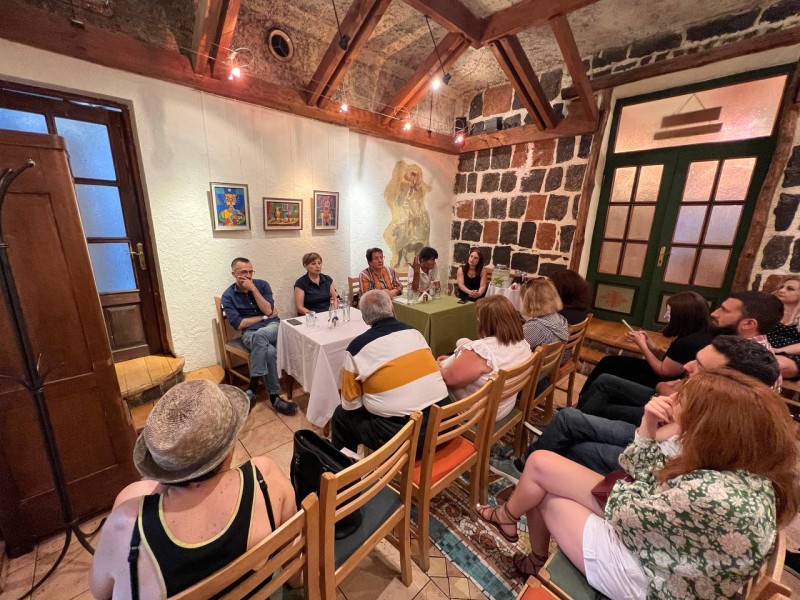
The Newmag Publishing House and “Art Bridge” continue the series of literary discussions. On August 23, which coincides with the Declaration of Independence, Armenian writers explored why literature hasn't adequately addressed our history, why the 30 year
During the discussion, writer Susanna Harutyunyan expressed her disagreement with the notion that Armenian literature remains silent about our history. She pointed out that the 30 years of independent Armenia have indeed found substantial representation in Armenian literature. It was simply not covered. It's simply that these literary works didn't receive much coverage. The media showed limited interest in them, and there were no adaptations into plays or movies for many of these stories written by Armenian authors. Susanna Harutyunyan recalled her novel “Holy Slaves” falling into the category of political satire, along with several other plays she has written on political themes. She mentioned that during the first Artsakh war, 35 writers were actively involved. She expressed a sense of guilt for not having read all the books authored by her friends, despite her role as an editor.
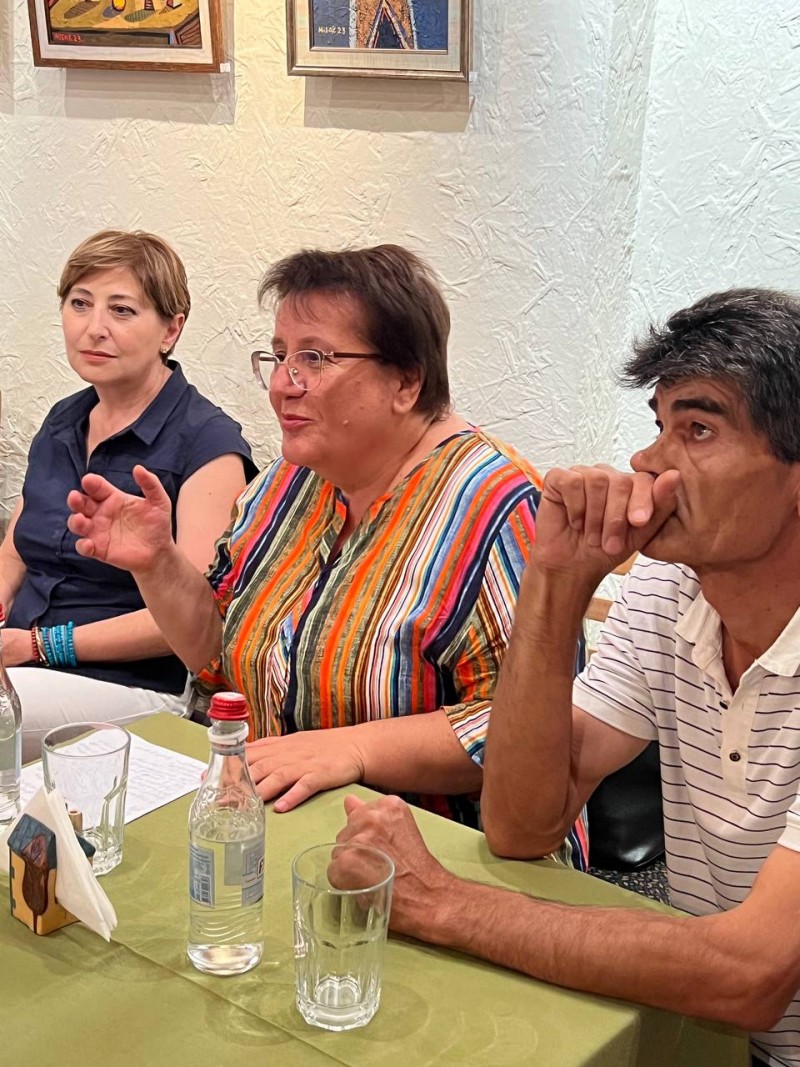
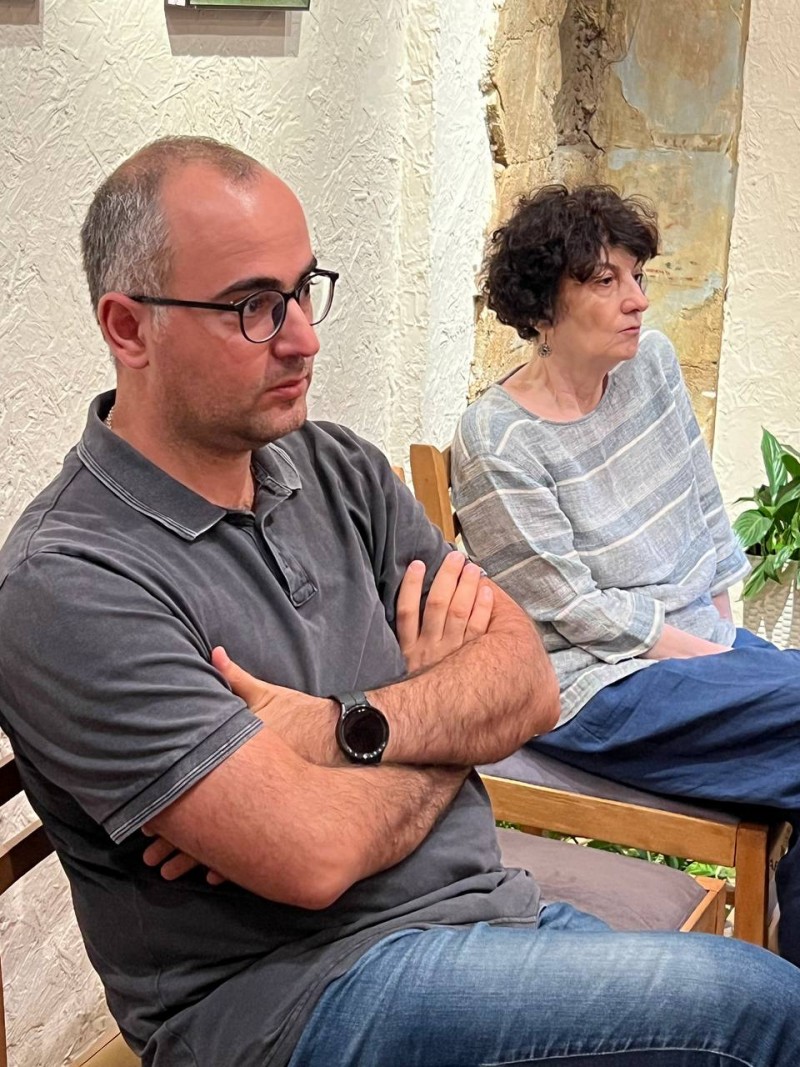
Narine Kroyan, an economist by profession, has authored 70 narratives, 6 short novels, and 3 more novels. Perhaps influenced by her background, she frequently delves into writing on social subjects. “I also have a political tragedy. It reflects our life outside the capital. I have 6 narratives about the 44-day war, I have also written a new novel, which will be published soon, "The Time of the Flies”. I worked for a long time, gathering facts. My son also took part in the war, and I wrote about his experiences and those of his friends. I aim to evoke emotions in the reader, to ensure there is no indifference. It's because, if we were not indifferent, we might not be in this situation. We should strive to be individuals who empathize with others' pain and carry that pain within us”.
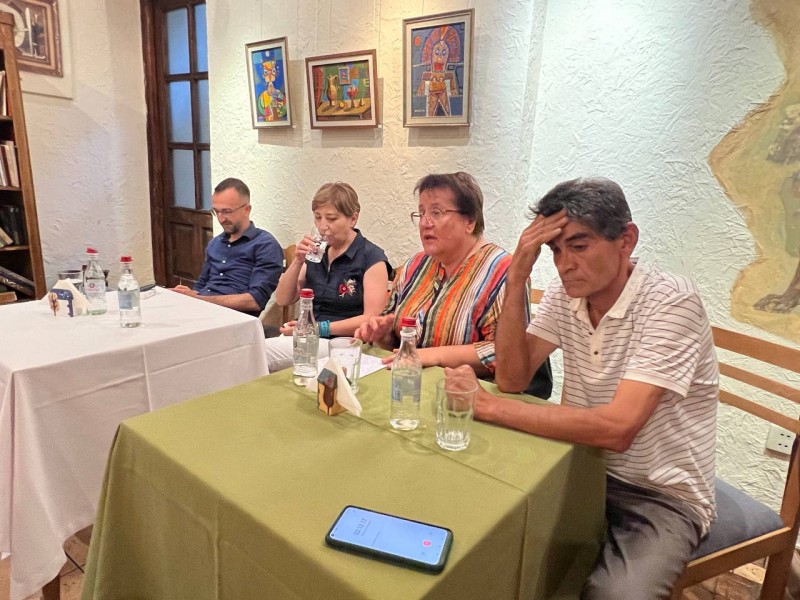
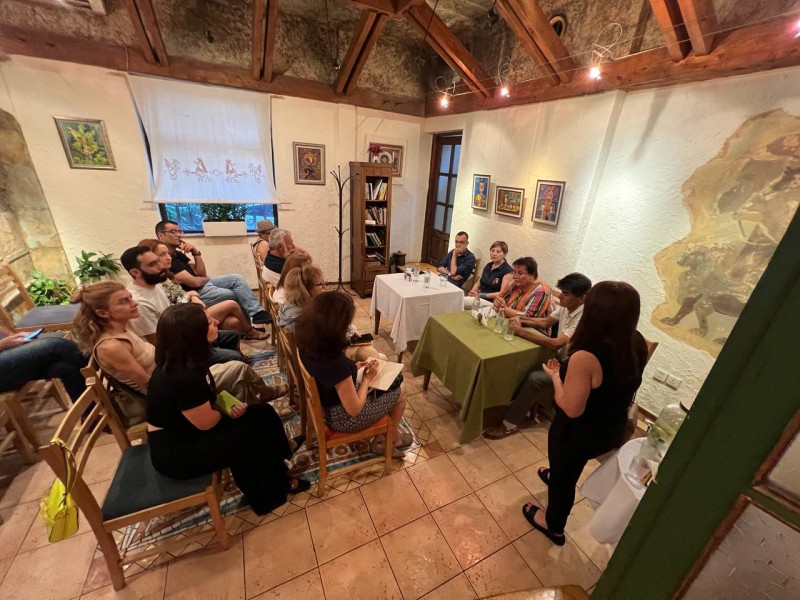
According to Armenian novelist Harut Kbeyan, history is a science, a scientific discipline. Writing about war is very specific. Even the writers participating in the war avoided writing down what they saw and felt. “Each of the writers described their environment, tomorrow, the next day; those studying history will use literature itself. And the problem is not in the literature. On the contrary, it reflects this period so much and well that they will get more information from the literature in the future. It is an impression that all our authorities have rejected science. In the last thirty years, they have provided meager funding”.
Poet Husik Ara is convinced that his works are linked to our history. Additionally, pen pals also produce valuable literary works. Quite simply, in this “abnormal reality”, literature and art seem to be less valued, whereas there was more appreciation for them during the order of the Soviet Union. “Vardanank” and “The King Pap” were commissioned works. Marvelous literature was produced on demand because there was an order and a need for it. It's not just me; authors like Levon Khechoyan and Hovik Vardoumian, among others, have done the same. I apologize for not mentioning everyone. But everyone is writing about it. Last year, I published a book that spans from the first war to the 44-day war. There was an exceptional generation that we lost; some turned to alcohol, and others left. We have a limited number of readers. I have a new book ready, but I'm not printing it because of the prevailing indifference”.
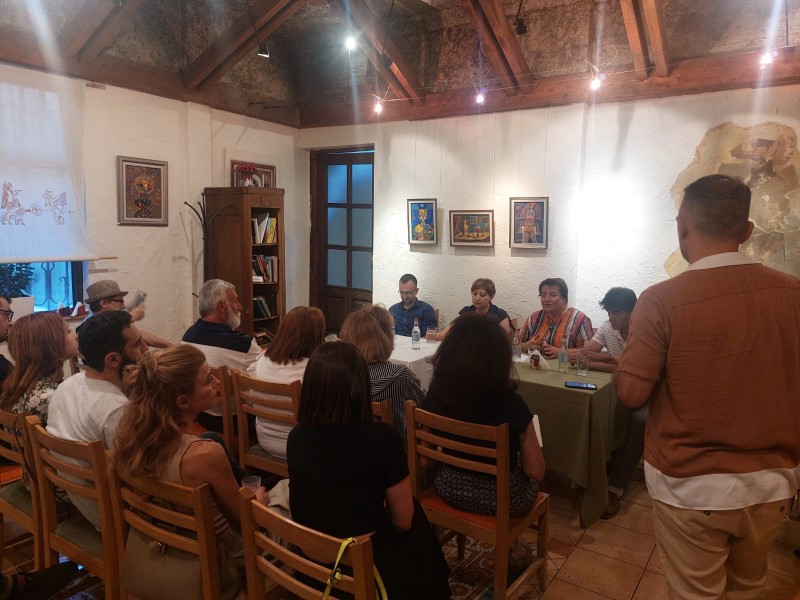
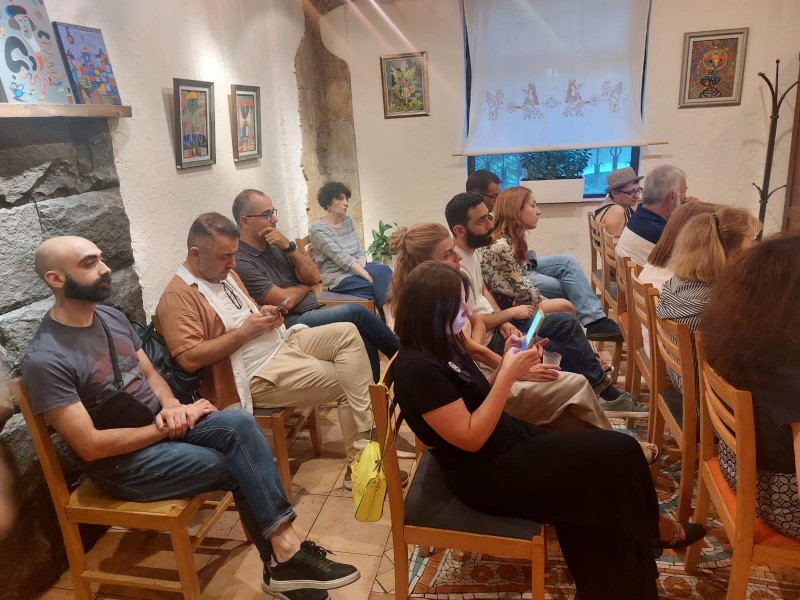
According to literary expert Satenik Avetisyan, Armenian writers do write, but the problem lies in the fact that we often don't read Armenian writers. A child can enjoy reading a foreign book of several hundred pages but might reject Armenian literature. What we need is cosmic, universal literature with a broad and magical worldview.
Read also

At Winterfest 2026, Newmag will present Henrikh Mkhitaryan’s memoir “My Life Always at the Center” (trailer)

Winterfest to feature David Georgyan’s sci-fi action novel Impedance (trailer)

At Winterfest 2026, Newmag will present Marianna Hakobyan’s “Don’t Change the Names” (trailer)

Closing and Award Ceremony of the “Sprout in Armenian – 2025” Competition at Newmag Winterfest

